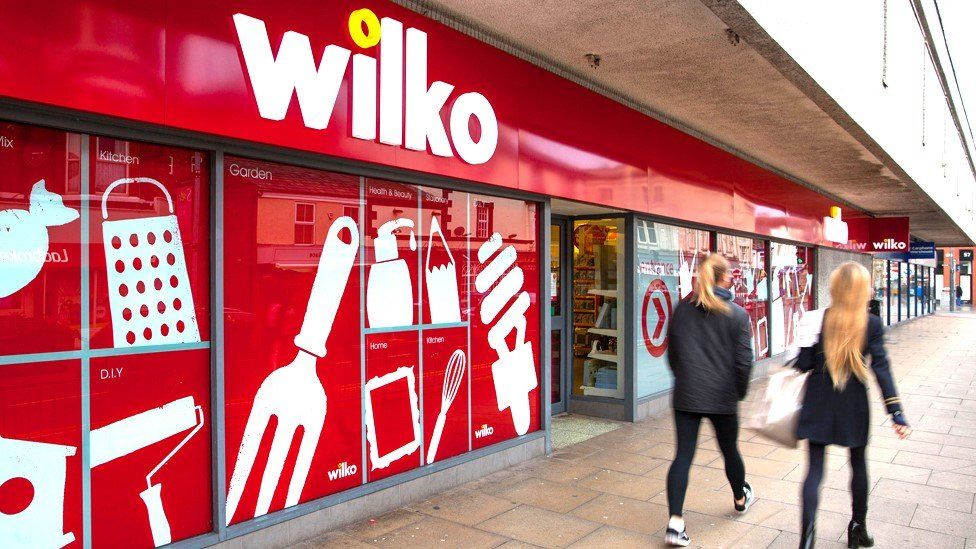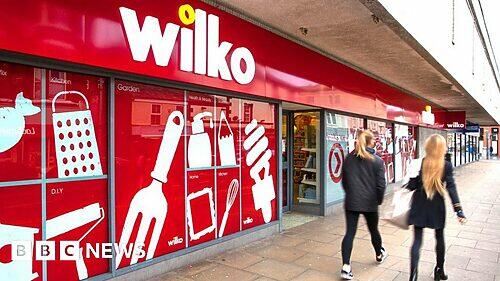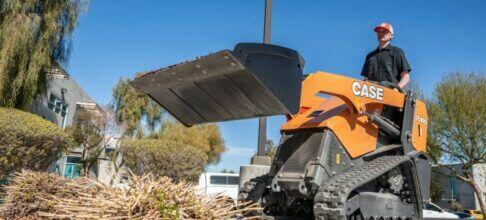
By Faarea Masud
Business reporter
Wilko, the High Street homeware retailer, has collapsed into administration after failing to secure a rescue deal.
The chain has so far been unable to find enough emergency investment to save its 400 shops and 12,500 workers.
The stores will stay open for now, without any immediate job losses, and staff will continue to be paid.
PwC has been appointed as administrator and will continue to look for a buyer for all or part of the group.
Jane Steer of PwC said that Thursday's announcement is "an unsettling development for everyone involved with the business - particularly its committed team members - and the communities it serves across the region".
In a separate statement, Wilko's boss, Mark Jackson, said management had "left no stone unturned" in its attempts to save the company.
"But we must concede that with regret, we've no choice but to take the difficult decision to enter into administration," he said.
If a firm fails to buy any of the shops or parts of the business out of administration, Wilko, which was founded in 1930, risks becoming the biggest High Street casualty this year.
The GMB union said the collapse was "entirely avoidable".
National officer Nadine Houghton said: "GMB has been told time and time again how warnings were made that Wilko was in a prime position to capitalise on the growing bargain retailer market, but simply failed to grasp this opportunity."
Although the business has been struggling for some time, the depths of its problems emerged last week when it announced its intention to appoint administrators.
This gave Wilko 10 days to secure a rescue. However, it was unable to strike a deal within that timeframe.
PwC said that it will carry on conversations with investors who may be interested in taking on all, or part of, the business.
If no resolution is found though, it said that store closures and redundancies could follow.
Mr Jackson said Wilko had received a "significant level of interest" which he said included "indicative offers that we believe would meet all our financial criteria to recapitalise the business".
But he said: "Without the surety of being able to complete the deal within the necessary time frame and given the cash position, we've been left with no choice but to take this unfortunate action."
Wilko has been struggling with sharp losses and a cash shortage.
The company already borrowed £40m from Hilco, the restructuring specialist. It has previously cut jobs, changed its leadership team and sold off a distribution centre.
Thousands of Wilko workers are understood to be members of the firm's pension scheme. The Times recently reported that the scheme has a sizable deficit.
A spokesperson for The Pensions Regulator, said: "We are in discussions with the employer and scheme in our role to protect members at this challenging time, but will not comment further."
Many of Wilko's stores are in High Street locations in traditional town centres, which became an expensive liability as customers shifted to bigger retail parks and out-of-town locations.
Are you affected by issues covered in this story? Get in touch.
The company has also faced strong competition from rivals such as B&M and The Range as the high cost of living has pushed shoppers to seek out bargains.
Ms Steer said: "It's been a particularly difficult time for many High Street retailers over recent years, as reduced consumer spending, inflationary pressure and increasing costs continue to have an impact."
But retail analyst Catherine Shuttleworth said Wilko had failed to adapt for the future.
"A lack of investment in systems lacking the sophistication to support a business with shops both on High Streets and out of town retail parks combined with a large estate of over 400 stores has meant that significant investments have been needed over the last 10 years and these have simply not been made," said Ms Shuttleworth.
Meanwhile Richard Lim, chief executive at Retail Economics, a consultancy, said: "Against the backdrop of seismic shifts in consumer behaviour and the intense pressure on margins, the business was too slow to react to these mounting challenges and paid the ultimate price."
The company, founded in Leicester, is still owned by the Wilkinson family.
After the collapse of Woolworths in 2008, Wilko stepped up to fill the gaps left on High Streets.
Wilko began home deliveries in the 1940s, and stayed open throughout World War Two, helping residents keep their air raid shelters stocked.
On Wednesday, it announced that it had suspended home deliveries.














